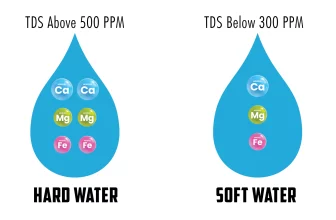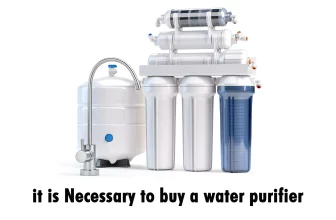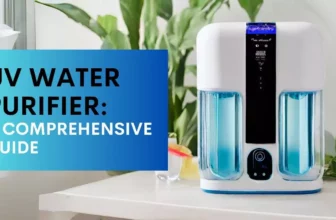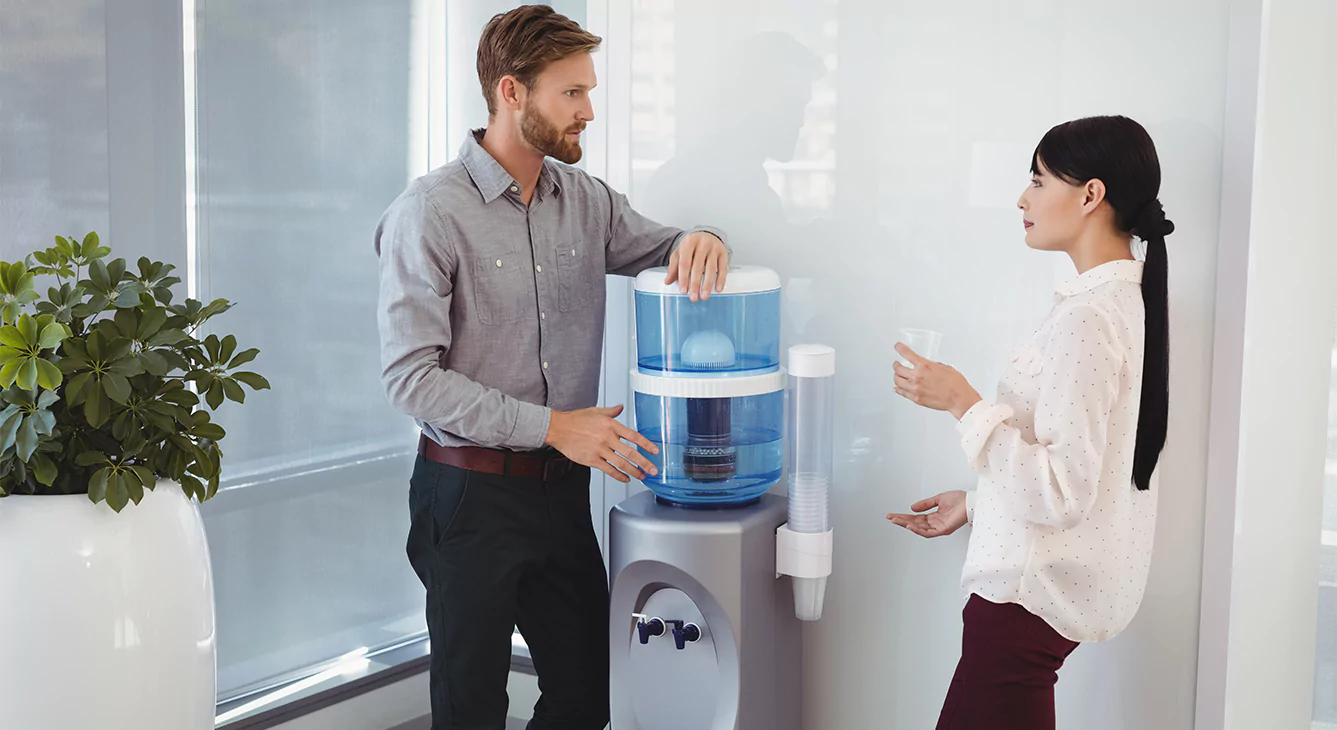
Are you looking to buy a water purifier? No worries, we have this comprehensive buying guide covering various types such as RO, UV, or any combination of water purifiers from different brands. We will assist you in finding the best-suited water purifier in India. In this comprehensive buyer’s guide, you will discover several key factors that will help you easily understand which water purifier is best for you.
Before purchasing a water purifier, it’s essential to go through these key points and gather information about water purifiers. To identify the right water purifier that matches your requirements and budget, read our quick water purifier buying guide from the experts.
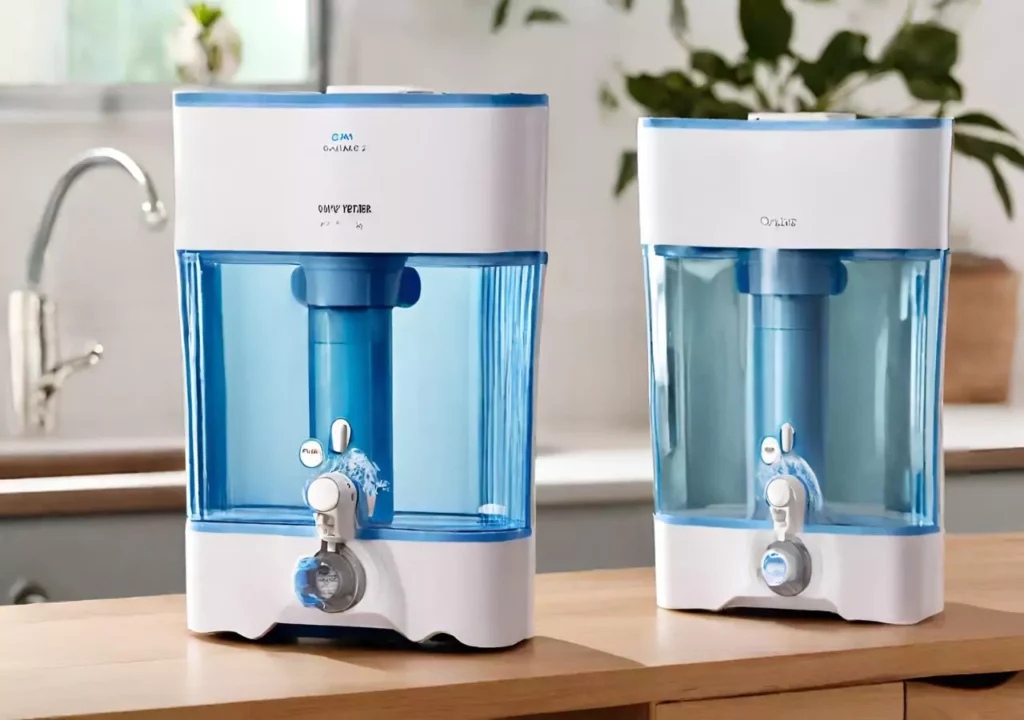
Selecting the right Water Purifier
Water Type: First, analyze the area in which you live is it rural, industrial, or urban? Check whether the water is soft or hard. The best way to identify this is by examining the TDS (total dissolved solids) level of your water source. This information will be very helpful for you.
recommended purifiers for hard and soft water:
| Characteristic | Hard Water | Soft Water |
|---|---|---|
| Major Sources | Well water, water from certain underground sources, Bore Wells, and tanker supplies rich in minerals | Rainwater is water from some rivers and lakes with a low mineral content. |
| Indicator | Scale buildup in pipes, appliances, and water heaters. | Reduced scale buildup, promoting better appliance longevity. |
| Common Chemicals | Calcium carbonate (CaCO3), magnesium sulfate (MgSO4). | Sodium bicarbonate (NaHCO3), potassium chloride (KCl). |
| Laundry and Cleaning | Generally tasteless, and lacks a mineral flavor. | Clothes feel soft, soap dissolves readily. |
| Taste and Odor | May have a mineral or earthy taste. | Generally tasteless, lacks a mineral flavor. |
| Recommended Purifiers | RO+UV+UF is common | UV is good but combination of UF is good |
By understanding the water type, you can pick the suitable water purifiers for your home.
TDS Level
According to BIS, TDS levels must be less than 500 ppm. If it is less than 250, you should buy a UF+UV filter, not an RO.
| TDS Level | Combination of Filters in Purifiers |
|---|---|
| Above 200 | RO+UV or RO |
| Up to 200 ppm | UV+UV, UV or UF |
Storage Tank Capacity
You will need more storage capacity for a more prominent family, so purchase one large enough for your family.
| Family Members | Storage Tank |
|---|---|
| Couples, Bachelors | Up to 5 liters |
| Small families of Up to 4 peoples | 6 to 8 liters |
| Small families of Up to 4 peoples | 8 to 10 liters |
| Large families | 12 to 15 liters |
Electric or Non-electric purifier
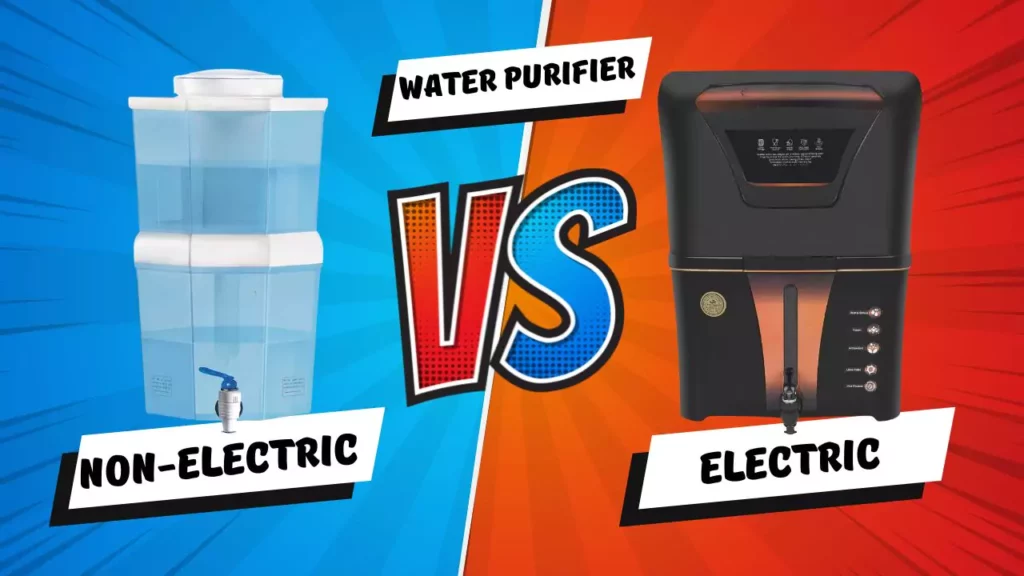
Regular water purifiers are generally electric. However, if you are concerned about electricity cuts, high electricity bills, and additional costs for maintenance, then non-electric water purifiers or gravity-based water purifiers are the best to buy. The higher the TDS level (above 1500), the greater the water pressure should be; otherwise, your purifier may be damaged. So, choose wisely.
Water Pressure
To fill the storage tank, you need sufficient pressure for automatic filling. If the water supply is erratic and you are unable to fill it automatically, you may need to install a booster pump. Therefore, ensure you consider this key factor when making a purchase.
Key Point
Key Points to Consider While Buying the Best Water Purifiers:
- Filter Replacement Time: You should change the filter after a specified period to ensure optimal performance.
- Durability: A well-built water purifier will last for many years, providing long-lasting efficiency.
- Safety Features: It should include additional safety and security features to ensure the purity of the water.
- After-Sales Service: Consider the brand’s after-sales service for ongoing support and maintenance.
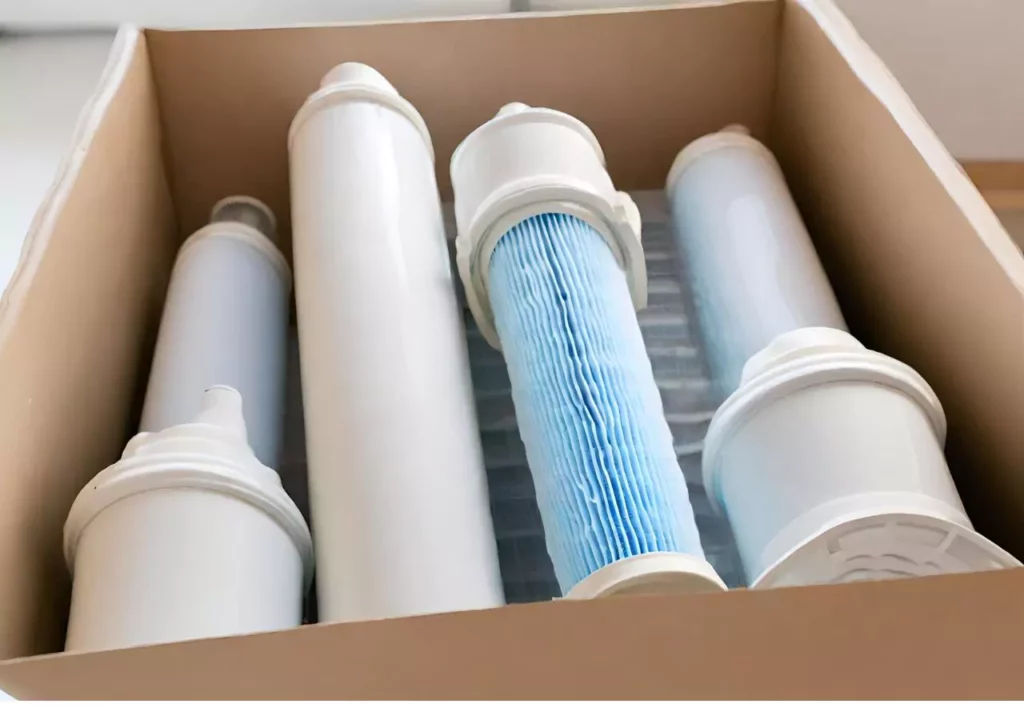
Water Purifier Types!
There are different types of water purifiers; have a look at these main types.
Reverse Osmosis (RO) Technology Water Purifier
- RO Purifier Mechanism Removes contaminants by forcing water through a semipermeable membrane under pressure, with a primary filter at 0.0001 microns.
- Effective Impurity Removal Eradicates impurities, including calcium and magnesium compounds, addressing water hardness.
- Comprehensive Purification Goes beyond hardness reduction, ensuring the removal of hazardous substances like fluorides, arsenic, lead, and mercury.
- Optimal Performance Range Tailored for Total Dissolved Solids (TDS) within the range of 200 ppm to 2000 ppm.
- Versatile Solution Stands as a versatile purifier for comprehensive water purification.
- RO Purifier Drawbacks Wastes 35 to 40% of total tank water, requiring three liters to produce one liter of filtered water. Removes essential minerals like calcium and magnesium.
Ultra Violet (UV) Technoloy Water Purifier
- UV Water Purifier Mechanism Utilizes intense ultraviolet rays to kill or inhibit bacteria and viruses in water.
- Targeted Microorganism Elimination Eradicates germs, bacteria, and viruses by interfering with their DNA, preventing reproduction and contamination.
- Limitation Unable to reduce the Total Dissolved Solids (TDS) level of water.
- Compatibility Suitable for low TDS water but recommended to supplement with pre-filters or an activated carbon filter.
- Enhancement Recommendation Suggested to enhance performance by using pre-filters or an activated carbon filter.
- Versatility Primarily used in large areas for thorough cleaning and germ eradication.
Ultrafiltration (UF) Technology (GRAVITY-BASED)
- Gravity-Based Water Purifier Features Ideal for cyst removal, operates without electricity, suitable for low TDS water but does not eliminate dissolved minerals.
- Enhancement Recommendation Recommended to supplement with sediment and activated carbon filters for improved performance.
- MF (Micro Filtration) Mechanism Purpose is to remove dust and large particles from water through Micro Filtration (MF).
- Cost and Energy Efficiency Incredibly cheap as it relies on gravity, consuming no electricity for operation.
- Bacteria and Virus Inhibition Inhibits and eliminates bacteria and viruses to some extent during the filtration process.
- Cleaning Process During manual cleaning, germs are trapped in the MF filter.
- TDS Reduction Consideration Ideal for reducing TDS in water, as UF filters cannot remove dissolved solids.
Starting Price Range of Major Types of Purifiers!
| Type of Water Purifier | Major Feature | Starting Price Range |
| RO Water Purifier | Effective, fast, and reduces the hardness of water | Rs. 7,000 |
| UV Water Purifier | Uses Ultraviolet rays faster; do not remove sterilized microorganisms or dissolved organic and inorganic particles | Rs. 5,000 |
| Gravity Water Purifier | Uses pressure filtration, is non-electric, and is portable. | Rs. 1,000 |
| Alkaline Water Purifier | Larger hydrogen potential, ionized water, and boiling more quickly | Rs. 4,500 |
Conclusion
Whether you choose RO, UV, UF, or any gravity-based non-electric purifier, this buying guide will help you pick the most suitable water purifier for you. To buy the best water purifier, consider key factors, such as the recommended filter replacement time, to maintain optimal performance. Additionally, prioritize durability, opting for a well-built purifier that ensures long-lasting efficiency. Look for models with added safety features to guarantee the purity of the filtered water. Finally, assess the brand’s after-sales service for ongoing support and maintenance, ensuring a reliable and convenient experience with your chosen water purifier.
If you still have any doubts or queries, you can ask us directly; our experts will respond promptly. Additionally, if you have any suggestions, please share them with us.


![5 Points of Buying Guide for Water Purifier [RO, UV, UF] (2023-24)](https://www.takemetechnically.com/wp-content/uploads/thumbs_dir/best-non-electric-water-purifier-in-india-6572077a28f67-qgh05pufqllcczcvwwywqxfgljidrulwnub4g8p2d8.webp)
![5 Points of Buying Guide for Water Purifier [RO, UV, UF] (2023-24)](https://www.takemetechnically.com/wp-content/uploads/thumbs_dir/uv-water-purifier-a-comprehensive-guide-6572deac839ae-qgi4a4i5tivl5d9xl9ocafqyp47lzssz8zrwzf24vw.webp)
